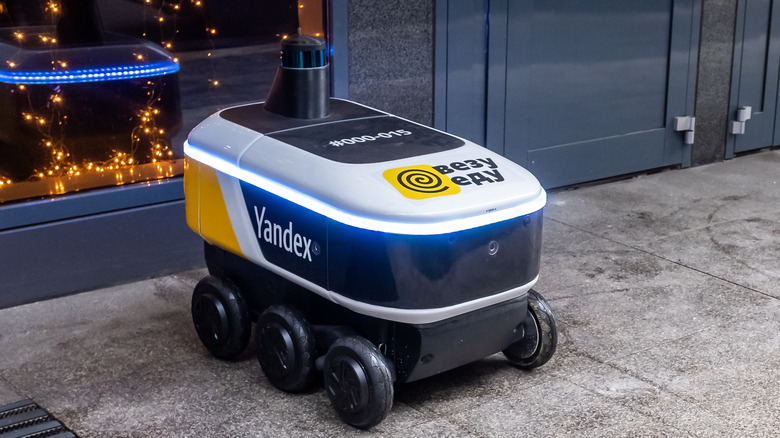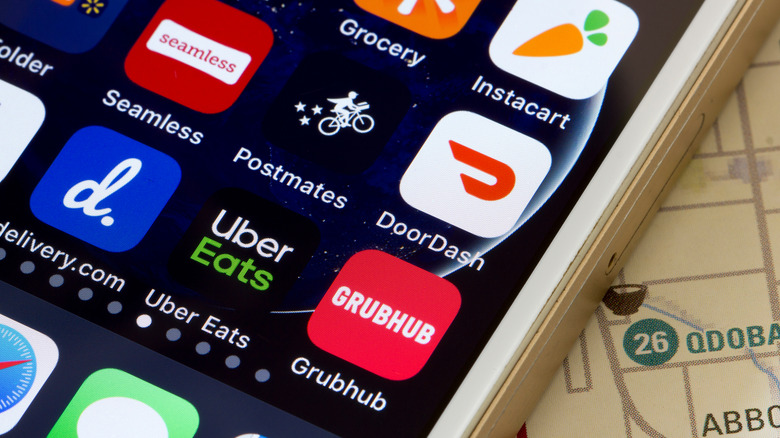The Futuristic Way Grubhub Will Soon Deliver Food On College Campuses
On the campuses of 250 colleges across America, students returning for the fall semester can expect to see small wheeled machines delivering food. These, as The Verge writes, are the result of a collaboration between Grubhub and Yandex, a Russian start-up that develops self-driving technology.
The benefits Yandex brings are that their delivery robots are capable of navigating pedestrian areas not accessible by car, such as large swathes of a college campus, and robots may cost a lot less than delivery drivers. While the range they cover represents a massive expansion for the company, they already have experience delivering food. Engadget reports that Yandex has been running deliveries for restaurants in Ann Arbor, Michigan, since April.
Rather than a technical mishap, the biggest challenge for Grubhub's robo buddy will probably be drunk college students who mess with the machines, which is a likely possibility. According to NBC, HitchBOT, a robot that hitched rides safely through Canada and into the U.S., was vandalized when it reached Philadelphia.
Grubhub is not the only delivery app exploring a robotic future
While the news of Grubhub's robotic expansion is noteworthy, it is also a bit late. Its competitors have already started to experiment with incorporating robotic sub-companies into their portfolio.
According to Foodable TV, Postmates has held ambitions to marry drivers with robots by having a remote controlled robot called Serve navigate Los Angeles and areas through which traffic cannot easily pass.
In February, TechCrunch covered DoorDash's acquisition of Chowbotics, a robotics company that made its name by inventing vending machines for customizable salads. Since then, Chowbotics has teamed up with Kellogg's to provide college campuses with the same service but for breakfast cereals.
These innovations are due to the need for these companies to make a profit, which Market Watch claims they broadly failed to do even in the business boom of the lockdowns. If they cannot sustain themselves in the most favorable circumstances, then they might want to reduce their labor costs. This is doubly true as we transition into a landscape that plays less to their strengths. However, considering that the two great ideas pushed have been a more sophisticated vending machine and robots that have yet to face the issues of regulation, it is unclear how these investments will pan out.

